Best electric car leasing deals: April 2024
Looking at swapping petrol or diesel pumps for a plug? Whether it's nearly new, PCP or leasing, here are some of the best electric car deals available right now
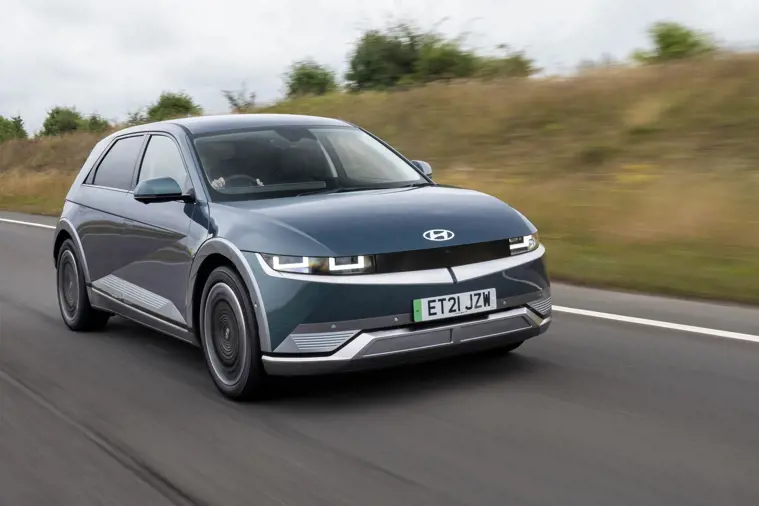
Hunting for the best electric car finance deals has become a priority for many motorists. This is because more and more drivers are seeing the benefits of an electric car - especially with petrol and diesel prices showing no signs of decreasing. Plus, the idea of a quiet, relaxing car which can be refuelled as you sleep sounds pretty appealing.
Additionally, if you charge using electricity from renewable sources, the carbon footprint of each mile you drive is tiny. For certain types of motorists - especially those who drive company cars - an electric car can present significant financial savings, too.
As demand for battery-powered cars is growing, so too are the number of makes and models available to choose from. Given the size demands of packaging a big enough battery under an electric vehicle, combined with their popularity, it's no surprise that the number of electric SUVs to choose from is growing quickly.
We've been busy searching online to find what we think are the best finance deals on electric cars. You may be surprised at how affordable switching to an electric car can be. Plus of course, don't forget about the far cheaper running costs, especially if you switch at an EV specific energy tariff.
Audi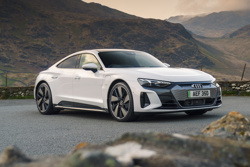
- Fancy trying and Audi e-tron GT for size? Lease Audi's flagship EV coupe on a 36-month deal for £960 per month
BMW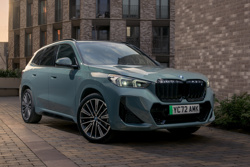
- All BMW i EVs are available to lease, starting with the BMW iX1 at £463 per month. Free home chargers or £750 charging credit are included
Citroen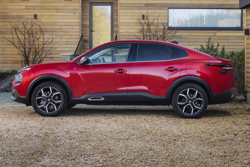
- The Citroen e-C4 and Citroen e-C4 X are available on 48-month PCH for £399 or £359 a month respectively. Prices are the same for PCP with 0% APR, too
Cupra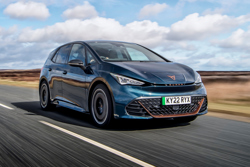
- Both the Cupra Born V1 and V2 are available to lease, starting from £440 and £470 per month, respectively
Fiat.jpg?rmode=max&width=250)
- The Fiat 500e (RED) is available for £299 a month with £999 down on PCH, or with zero deposit, £3,000 off and 0% APR on PCP
Ford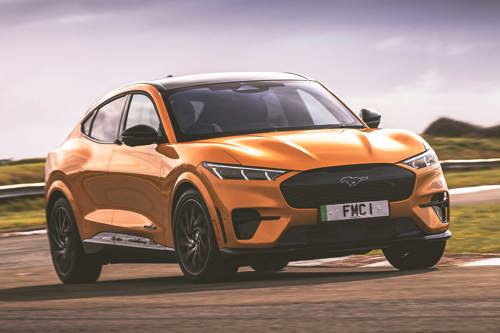
- Ford Mustang Mach-E Select is available at £568 per month on a three-year deal from Ford Personal Contract Hire from Ford Lease
Honda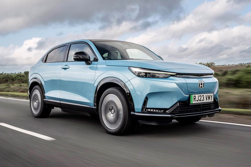
- The electric Honda e:Ny1 has £8,000 towards your deposit if you opt to finance using PCP
Hyundai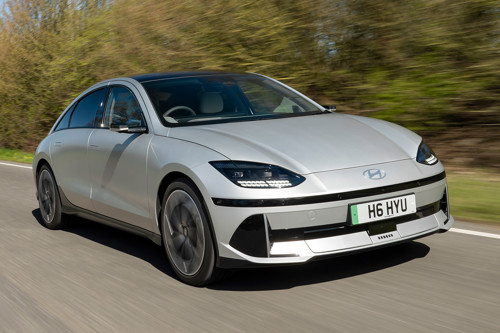
- Hyundai Ioniq 5, Hyundai Ioniq 6 and Hyundai Kona Electric are all available with 0% APR on PCP. There's no minimum deposit required, and deal terms are up to 36 months
Jaguar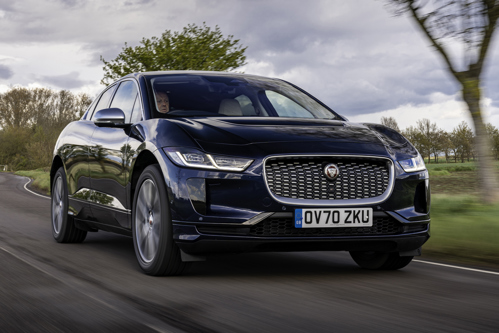
- PCH starts at £775 for a Jaguar I-Pace on a 48 month term. Opt for PCP and you get £3k towards your deposit and monthly payments start at £649
Kia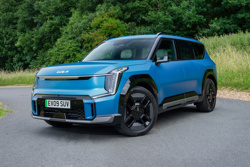
- Kia is offering zero deposit deals on the Kia Niro EV, Kia Soul EV, Kia EV6 and Kia EV9 EVs. All include two years' servicing, the Niro and EV6 include a £1,000 deposit contribution, and the Soul £1,500
Lexus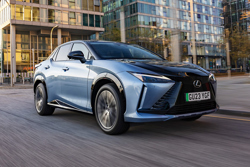
- Deposit contributions for cars on PCP include £4,500 for the electric Lexus RZ 450e and Lexus UX 300e SUVs
MG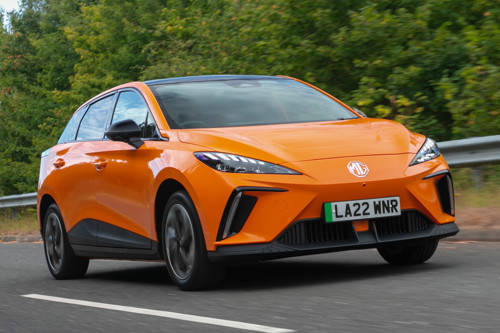
- MG4 EVs, except the X Power model, and MG ZS EVs are available with 0% APR when you put down a minimum 20% deposit PCP
Mercedes-Benz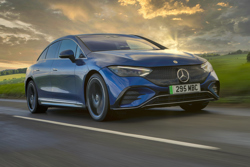
- Mercedes EQA, Mercedes EQB, Mercedes EQE and Mercedes EQS Saloon are 0% APR and the Mercedes EQS SUV is 4.9% APR on Agility PCP. Deposit contributions of £2,000-£5,000, too
Nissan.jpg?rmode=max&width=250)
- Nissan Ariya models are available with £1,000-£2,000 deposit contributions on PCP, and the Nissan Leaf with 0% APR and £1,000 towards your deposit
Peugeot.jpg?rmode=max&width=250)
- The electric Peugeot e-208 and Peugeot e-2008 get 0% APR, no deposit and £5,000 discounts on PCP if you buy online
- The Peugeot e-308 gets 0% APR, no deposit and £2,500 off
Renault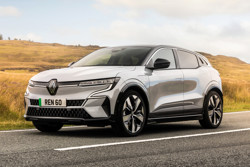
- The Renault Megane E-Tech EV is available on PCH from £445 per month, the Renault Scenic E-Tech from £498, and the Renault Zoe from £578
Skoda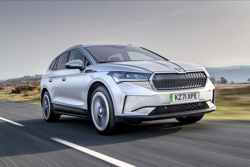
- The Skoda Enyaq 60 and 85 models currently benefit from 0% APR and deposit contributions on Solutions PCP
Subaru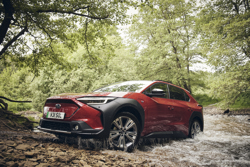
- The Subaru Solterra can be had on either PCH or PCP. PCH starts at £298 a month for 24 months, and PCP is £358 for 48 months
Tesla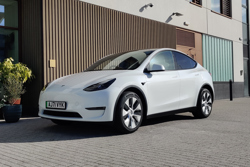
- Lease a Tesla Model Y for £374.24 per month on a 48-month contract, limited to 5,000 miles per year
Toyota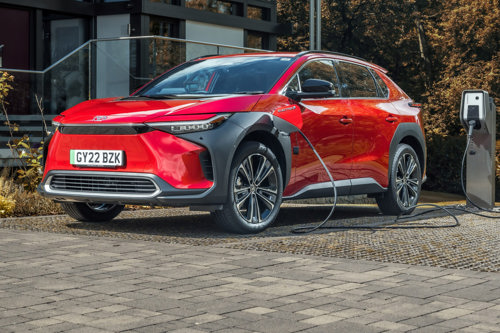
- Toyota bZ4X electric SUV available with 0% APR and a £2,000 deposit contribution on PCP
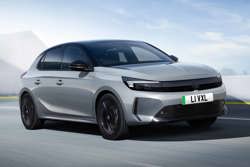
Vauxhall
- The Vauxhall Corsa Electric, Vauxhall Mokka Electric and Vauxhall Astra Electric are available on PCP and PCH. Deposit contributions of up to £5,500, £8,000 and £4,000 respectively are available on PCP with these models
Volkswagen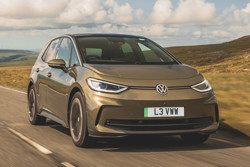
- The New VW ID.3 is available to lease through VW Financial Services, from £545 per month
Fiat 500 Electric
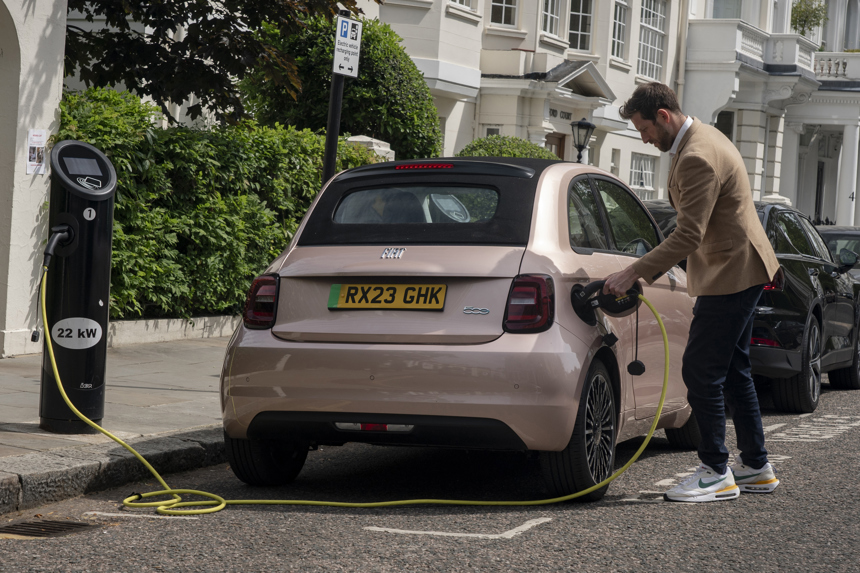
Our pick Fiat 500e (RED)
£0 deposit £296 per month on PCP
Fiat 500e review
The Fiat 500e might look like its long-lived petrol-powered sibling, but every panel of the EV is new. Also in keeping with the regular 500, is the 500e is competitively priced if you're looking for a small hatchback. Fiat offers the 500e on PCH, with initial rentals recently cut to £999, then £299 a month for 48-months with a 6,000 mile-per-year limit. It's also competitive on PCP too, with zero deposit, 0% APR and a £3,000 e-Grant deposit contribution all included.
- Fiat 500e (RED) 42kWh 3dr Auto
- Cash price: £31,195
- Customer deposit: £0
- Monthly payment: 47 x £296
- Representative APR: 0%
- PCP term: 48 months
- Mileage limit: 6,000 per year
- See this deal
Subaru Solterra
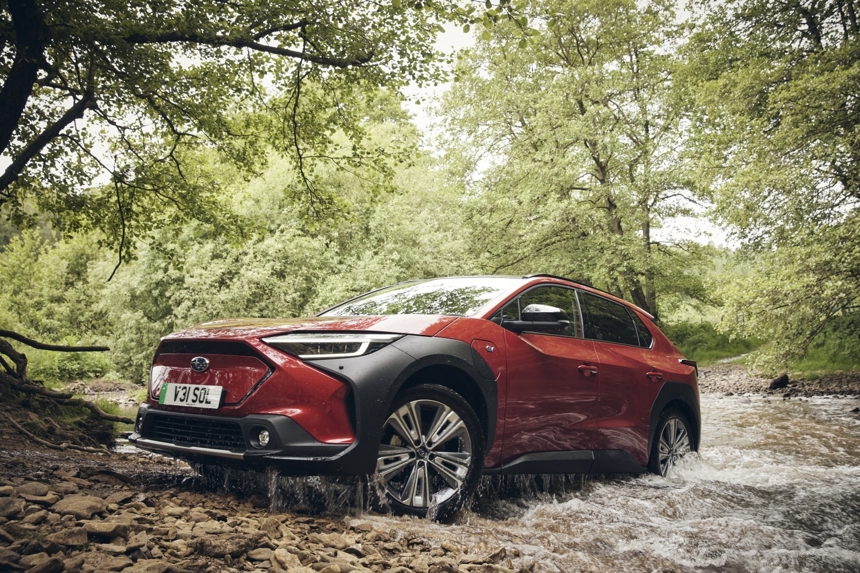
Our pick Subaru Solterra Limited
£14,225 deposit £358 per month on PCP
The Subaru Solterra is the firm's first electric car, and is the sister EV to the Toyota bZ4X. The Solterra is striking to look at, well made and very easy to live with. In fact, its only major drawback is a high purchase price if you're looking to buy outright. What we'd recommend instead, however, is to consider leasing a Solterra. Prices for the Limited model start at £298 a month on a 24-month deal, making this a great way to sample an electric Subaru.
- Subaru Solterra Limited 5dr
- Cash price: £52,495
- Initial rental: £2,682
- Monthly payment: 24 x £298
- Mileage limit: 8,000 per year
- Excess mileage cost: 18.7p
- See this deal
Peugeot e-208
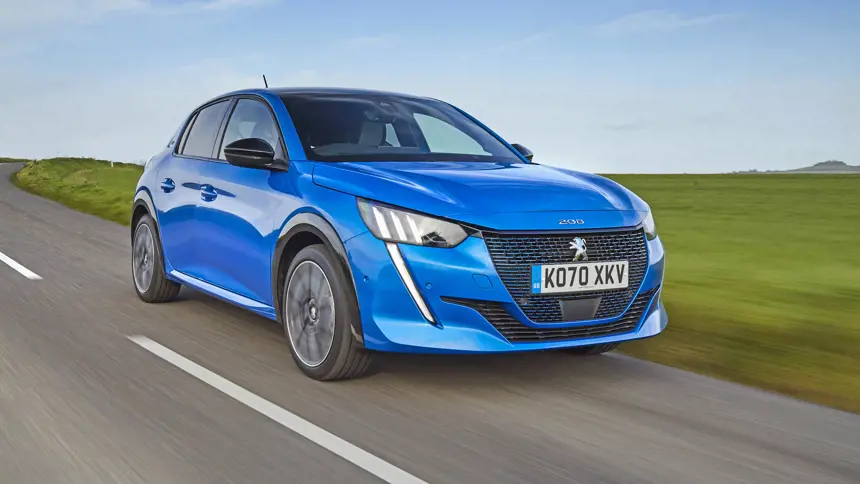
Our pick Peugeot e-208 GT
£2,377 deposit £260 per month on PCP
Peugeot e-208 review
The Peugeot e-208 brings a dose of style to electric motoring, while its interior offers plenty of high-quality materials and colours that give the cabin a modern, crisp feel, too. Buying a well-specified e-208 ‘GT’ model from the factory will cost £36,250, but nearly new models can be scooped up for less than £20,000, or lease from around £270 per month.
- Peugeot 208 100kW Allure 50kWh 5dr Auto
- Cash price: £15,849
- Mileage: 4,811
- Monthly payment: 35 x £259.97
- Representative APR: 13.5%
- PCP term: 36 months
- Mileage limit: 10,000 per year
- See this deal
Renault Zoe
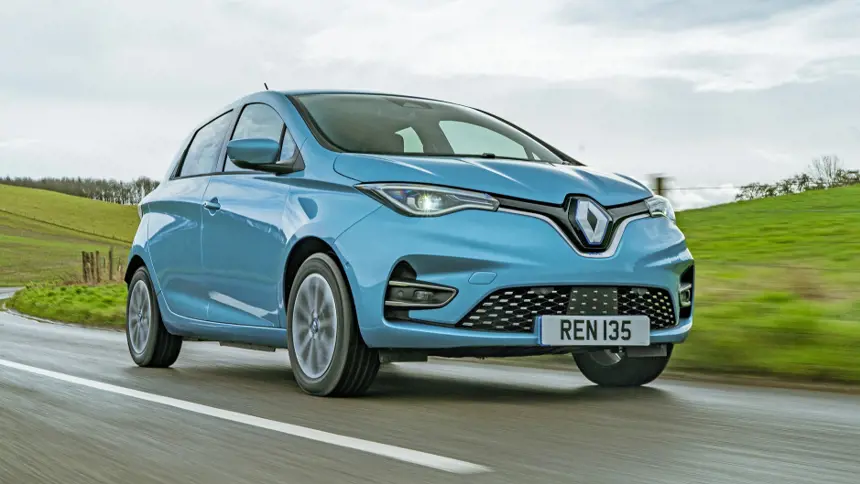
Our pick Renault Zoe Techno
£2,190 deposit £314 per month on PCP
Renault Zoe review
The Renault Zoe packs plenty of equipment into its small hatchback body, while returning a totally respectable range of just under 250 miles. Once again it's worth checking out nearly new models. For example, a Zoe Techno costs from £31,195 new, but a search of BuyaCar reveals cars with a few hundred miles on the clock for less than £20,000. If leasing is your preference, these start at around £440 per month.
- Renault Zoe 100kW GT Line + R135 50kWh Rapid Charge 5dr Auto
- Cash price: £14,602
- Mileage: 4,859
- Monthly payment: 36 x £236.86
- Representative APR: 12.9%
- PCP term: 37 months
- Mileage limit: 10,000 per year
- See this deal
Hyundai Ioniq 5
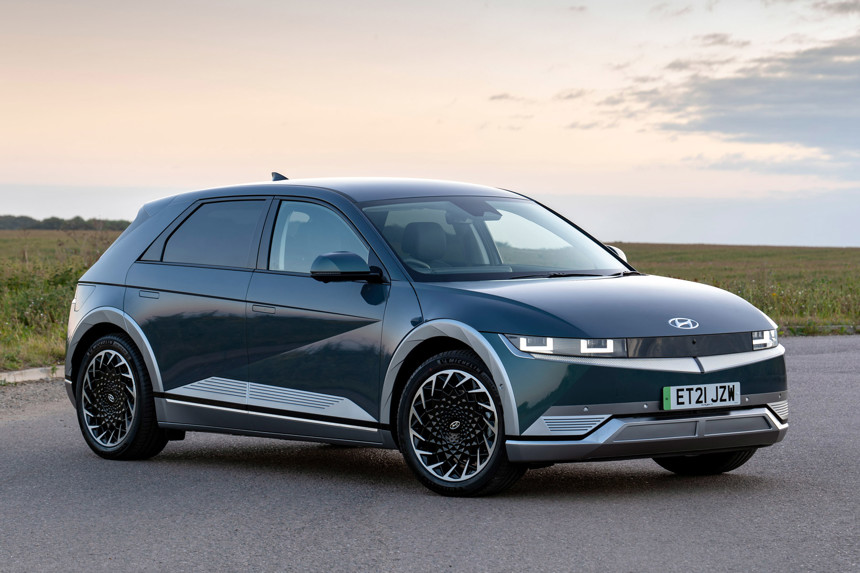
Our pick Hyundai Ioniq 5 SE Connect
£5,399 deposit £574 per month on PCP
Hyundai Ioniq 5 review
The Hyundai Ioniq 5 might just be the most striking electric car you can buy. Go for a new Ioniq 5 and you'll get 0% APR finance with no minimum deposit on PCP. However, go for nearly new and we spotted a high-spec Ioniq 5 on BuyaCar that's a 2022 model with 2,500 miles on the clock for less than £36,000. Leasing deals start at a little over £300 per month.
- Hyundai Ioniq 5 225kW Ultimate 73kWh 5dr AWD Auto
- Mileage: 2,500
- Price: £35,995
- Monthly payment: 36 x £573.77
- Representative APR: 12.9%
- PCP term: 36 months
- Mileage limit: 10,000 per year
- See this deal
Lexus UX
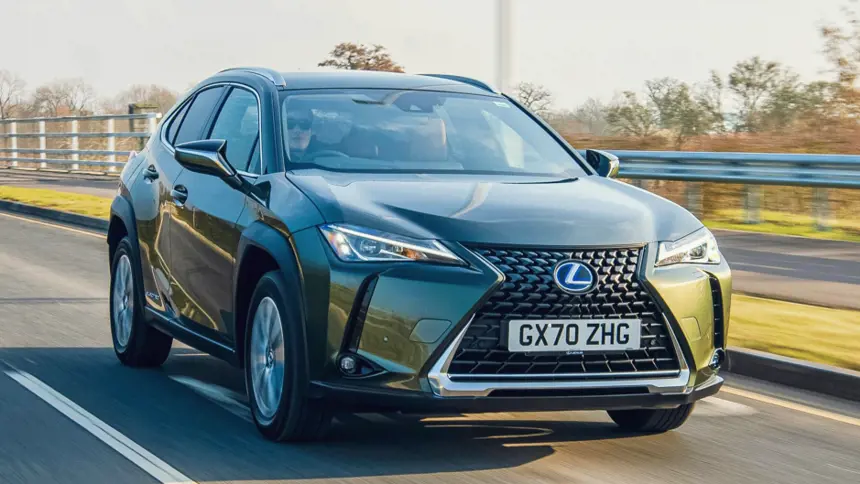
Our pick Lexus UX 300e
£3,900 deposit £420 per month on PCP
Lexus UX review
Arguably the biggest problem with an electric Lexus UX is the price. With list prices starting at over £48,000, you need deep pockets to afford this electric crossover in the first place. One way to lessen the financial blow, though, is to hunt down a nearly new model, with UX 300e models available for less than £33,000. UXe leases start at around £415 per month.
- Lexus UX 300e 150kW 54.3 kWh 5dr E-CVT
- Cash price: £26,000
- Mileage: 11,305
- Monthly payment: 35 x £419.84
- Representative APR: 13.5%
- PCP term: 36 months
- Mileage limit: 10,000 per year
- See this deal
How does electric car leasing work?
Just like a conventional car leasing deal, taking out a PCH agreement on an electric car will require you to make an initial payment, which will usually be a multiple of your monthly rate plus an admin fee, followed by an agreed number of monthly payments.
For example, if your EV costs £500 per month, a common initial payment is 9 months (9 x £500) plus around £300 in admin fees for the leasing company to cover paperwork and delivery costs. You pay this for your first month (£4,800), then say 35 more payments of £500 for a three-year leasing deal etc.
Once all payments are made and the lease comes to an end, the car is simply handed back to the organisation that it was sourced from. A key part to understand here is that at no point does the person or company leasing the car actually own it.
How much does it cost to run an electric car?
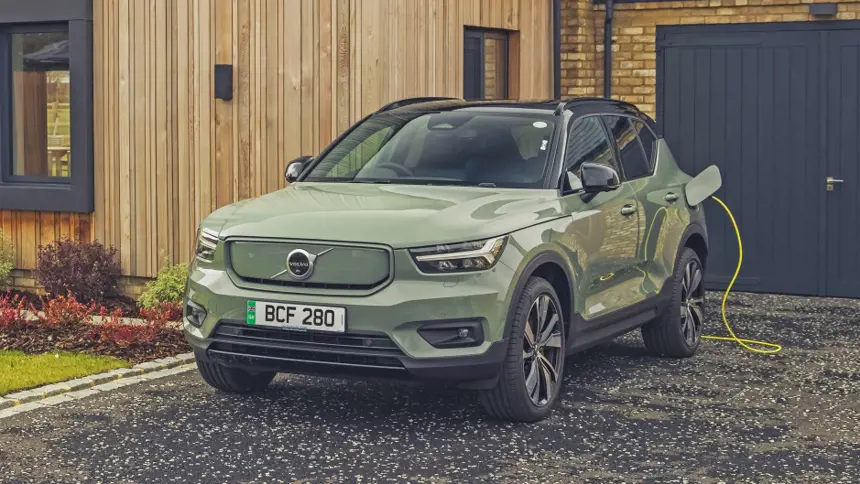
Leasing an electric car should mean rock-bottom running costs, as lease agreements are normally for new or nearly new cars. This means they are less likely to need major repairs and if there are any faults with the car, they should be covered by the warranty provided by the car manufacturer. In addition to this, electric cars should be even less likely to need work compared to a petrol or a diesel vehicle as they have fewer moving parts to wear out.
Furthermore, up until a car is three years old, it does not require an MOT. As many lease deals won’t run longer than 36 months, you can wave goodbye to spending time finding a reputable garage and wondering if they charged you a fair amount.
One last running cost to mention is road tax, which is most often paid by the organisation a car is leased from. As electric cars are exempt from road tax, though, this cannot really be considered a bonus as it is free anyway.
How do I charge my electric car?
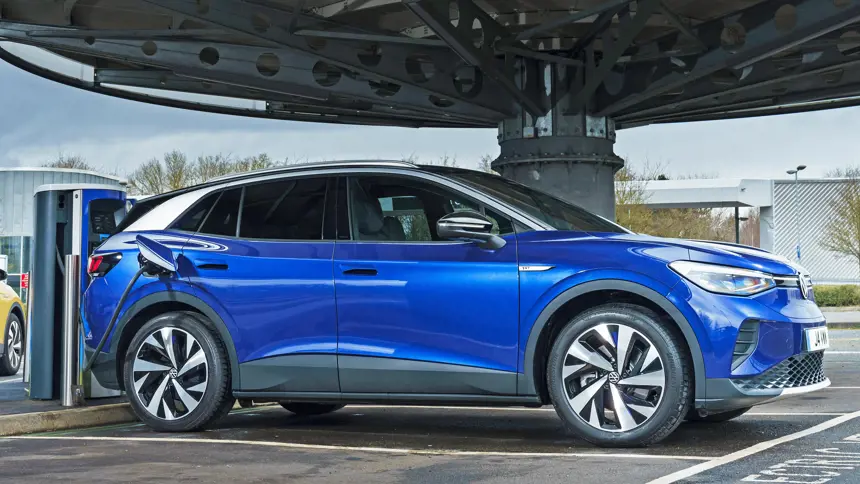
When leasing an electric car it is the responsibility of the driver to charge the vehicle and how this is done is up to them. They could use a three-pin plug as found in all UK houses, but because of the significant amount of electricity required to charge an EV, this isn’t recommended.
The best option is to get a dedicated car charger installed. It is worth shopping around as occasionally lease deals crop up that include a charger or at least a discounted one, or switching your home electricity tariff to an EV-specific one can yield the same result. Failing any deals being available, you will need to organise a company to come and install a charger for you.
For most domestic properties the maximum output for a charging point will be 7kW. Any higher than this and you will likely need to upgrade the power supply to your house, which gets expensive and disruptive. A 7kW charger is plenty for replenishing a battery’s charge overnight, although electric cars with large batteries (at least 75kWh) might struggle to get 100% charged overnight if flat when plugged in.
- Electric car charging stations explained
- Fast charging guide: Electric car charging cables and connectors explained
When driving an electric car, it is a good idea to think about the places you most commonly visit and maximise the charging network available. This is because, in some towns, there are shops, restaurants and leisure centres that can provide free charging. These save you money and handily keep your car topped up throughout the day.
Similarly, if you are going on a longer journey and need to top up the battery, finding a commercial charger with a high power output (such as 50, 75 or 100kW, or even more) cuts down the length of time you will be waiting for range to be added. Not all electric cars can charge at higher rates, though, so be sure to check the specification of the EV you are driving.
There are some great (and free) resources online that can help with finding chargers and planning routes. Zap-Map is one of the most popular, which can be accessed as a website and a smartphone app. A handy feature of Zap-Map is that it will show the type of charger connector (the European standard is called ‘Type 2’ but there are a few other types) available at each charging point and whether or not it is in service. Turning up to a broken charger is very frustrating...
What are the benefits of electric car leasing?
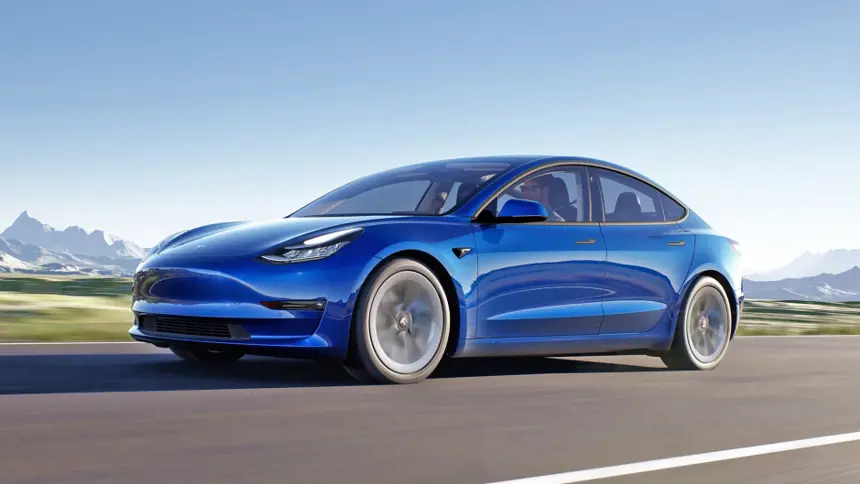
There is a wide and wonderful collection of benefits to electric car leasing. The first is convenience. Forget about MOTs, forget about unexpected repairs and forget about niggly tasks like taxing your car – they are all done for you. You also don’t need to stress about selling or part exchanging your car at the end of the lease, simply hand it back.
Most electric cars come with an eight-year warranty on the battery and so far there are yet to be widespread reports that batteries are failing before their warranty runs out. As lease deals won’t run past the end of the battery warranty, drivers can rest assured that issues with the high-voltage electronics should be covered by the manufacturer.
Another benefit to leasing an electric car (or any car for that matter), is that it makes managing your monthly costs dead easy as most of your motoring outgoings are wrapped up into one payment. Insurance will need to be factored in and depending on the length of lease and the expected mileage you will travel, a small amount of money will need setting aside for things such as replacement tyres.
Leasing a car can often mean lower monthly payments when compared to other finance methods, which is great news for anyone on a tight budget. This is mostly a result of there being no option to purchase the car at the end of the agreement or to have paid for the vehicle in full by the end of the agreed term.
As the UK Government is trying to get more drivers to use electric cars, there are financial incentives for using an electric vehicle. One of the main perks is lower company car tax. Company car drivers can make huge savings (possibly into the thousands of pounds) by driving an electric car for work. The savings will depend on how you lease your company car, whether that be through your employer, through a salary sacrifice scheme or through a private lease company.
Another financial bonus to leasing an electric car is you get to drive a car that is exempt from levies such as the London Congestion Charge. Although the congestion charge is one of the more well-known inner-city schemes, there are similar initiatives being introduced or planned in a large number of cities in the UK. Sticking with the London Congestion Charge, it is £15 per day, which soon adds up if you are driving through the middle of London each day.
On a practical note, in some regions, electric cars can use special lanes that are less likely to have traffic in them. For example, some bus lanes allow electric cars to use them. In theory, this should save you time on journeys in busy areas.
What are the downsides of electric car leasing?
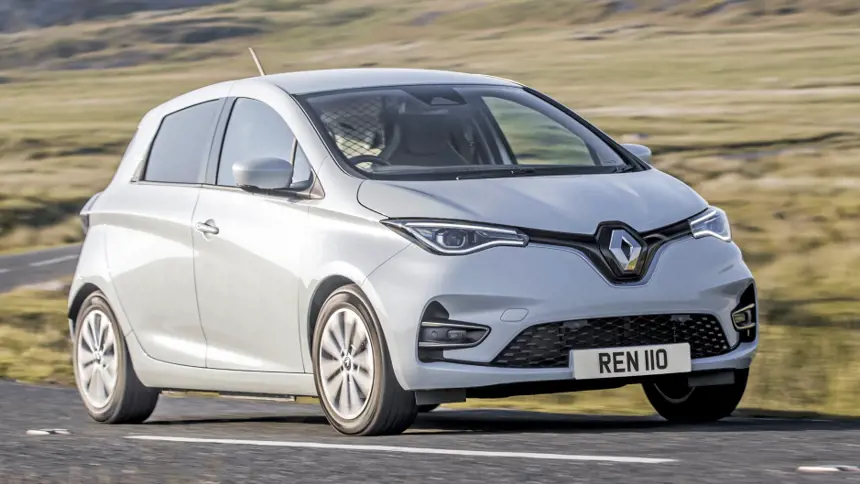
Leasing an electric car means that you still encounter the usual car leasing downsides. First, you will never own the car. While this might not be considered a negative by some, if you ever run into financial trouble (for example you lose your job) you will need to continue funding the monthly payments.
Second, not owning the car means that if a vehicle increases in value, you won’t see a penny of this but the company you lease it from will.
Third, you can be faced with a repair bill at the end of your lease. This will be for anything that isn’t classed as fair wear and tear. If you owned the car, you could make a decision to ignore a dent or an overly scuffed alloy wheel but with lease cars, you will have to pay to put right any excessive damage.
Lastly, mileage limits can help you secure rock-bottom monthly payments if you state that you won't drive the car that far. However, having a mileage limit can be frustrating, especially as some people get quite stressed about surpassing their annual limit.
